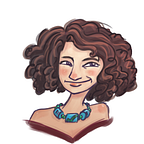Fluent in 3 months: academia to software engineering
Week 5/12
Long at last we started learning a new language (Typescript) and framework (Angular) beyond 30mn ‘Hello World’ intros. Unfortunately, my excitement was sullied by my fear and the biases I absorbed talking to instructors that don’t like Angular (or rather prefer to React, another framework, or maybe I will go so far as translate it as being a “dialect” of Javascript). The thought did cross my mind, why spend a week learning a language and subsequently being tested on it that we are not going to use? But the answer came instantaneously, inspired by my previous experience studying human languages: learning a foreign language facilitates the acquisition of additional languages. This statement holds true even for languages coming from different language families. Due to my German knowledge and familiarity with structuring my thoughts so that the verb comes at the end, rather than the beginning like in English, I was able to apply this pattern to Japanese: verbs always come at the end of clauses, so there was at least one Japanese grammar point that didn’t boggle my mind. Even though Japanese and German come from completely different language families (Indo-European and Japonic, respectively), there are similarities between them. This idea of “shared” features among unrelated languages, or language typology, is a subject that particularly fascinates me. If I had continued my path in linguistics, I probably would have become a typologist, comparing languages across families and categorizing them according to common structures rather than by family. Even if languages developed independently from one another, they are all human languages and therefore adhere to the same constraints and creativities natural to all humans, and influenced by their own environment and histories. Computer languages are no exception.
I thought this might be a good time to elaborate on my reasons for choosing to pursue a coding boot camp versus continuing with academia and becoming a professor, which most of my relatives had visualized as my future. I think my passion for foreign languages is clear merely by the title of the blog, but I’ll go so far as to convince you further: Since I was six I wanted to be fluent in at least three languages. I used to study random languages like Old Norse on school nights in high school. I dreamed of documenting an endangered language, and I was on my way to fulfilling it when I did field research in Myanmar and wrote my thesis on a linguistic introduction to the un-described language, Tangkhul. I didn’t leave this “dream” to become a software engineer. My decision to leave academia was completely independent and subsequently left me wandering for a few years since, like my relatives, I too had seen myself pursuing a thesis, working in research, and as a professor since I was in middle school. The only variable that changed was the subject (biology → linguistics).
I recall affirming my decision to quit during one of my morning bike rides while I was writing my master's thesis in Aix-en-Provence. It can be summarized in the following points:
- In truth, academia and research are more competitive than collaborative.
- “Publish or perish.” Need I add more?
- The need to niche in a field and be an expert vs generalist.
- Despite being an expert, you have to pine over jobs and live wherever you are blessed to find one.
- After becoming an expert and slaving over your thesis, it’s usually only read by a small group of academics. There’s little reach to the larger world.
Software engineering is turning into a passion for the same reasons why I left academia and why I loved it:
- You are constantly learning — so many new technologies and you need to be up to date
- The ample amount of research that needs to be done — to learn these technologies, to problem solve, to discover, to build a product, etc.
- It tends to be collaborative
- It’s the most portable profession that comes to mind.
- Most developers I know are generalists, rather than being experts in a random niche feature of one — its an ecosystem and you need to at least be familiar with how the parts work together
- The world is your oyster — you can make small applications in days and have a visual product to share with the world.
The last point resonates with me most deeply. I hope my work can touch more people than would have been possible as an academic. I remember the Tangkhul community I worked with, and how eager they were for a linguist to document their language. I felt a responsibility for them and simultaneously felt guilt for not pursuing a Ph.D. to document their language and guilt for knowing that even if I did continue documenting their language, my thesis would forcibly be my primary focus while developing educational resources for use in their community would be secondary volunteer work. The gamble I took by quitting was not just so I could live anywhere I desired (although that did play a major role), but primarily to develop or collaborate in technologies that would have a bigger impact on the Tangkhul or similar communities than a 500-page thesis ever would. For even if their village didn’t always have electricity, the elders I met had smartphones. Technology has infiltrated even rural communities without a dictionary to their language. Would they use a 500-page thesis in English? Or would they rather applications that they could write in their language and story games for their children? I’ll give it a few years and get back to you.
